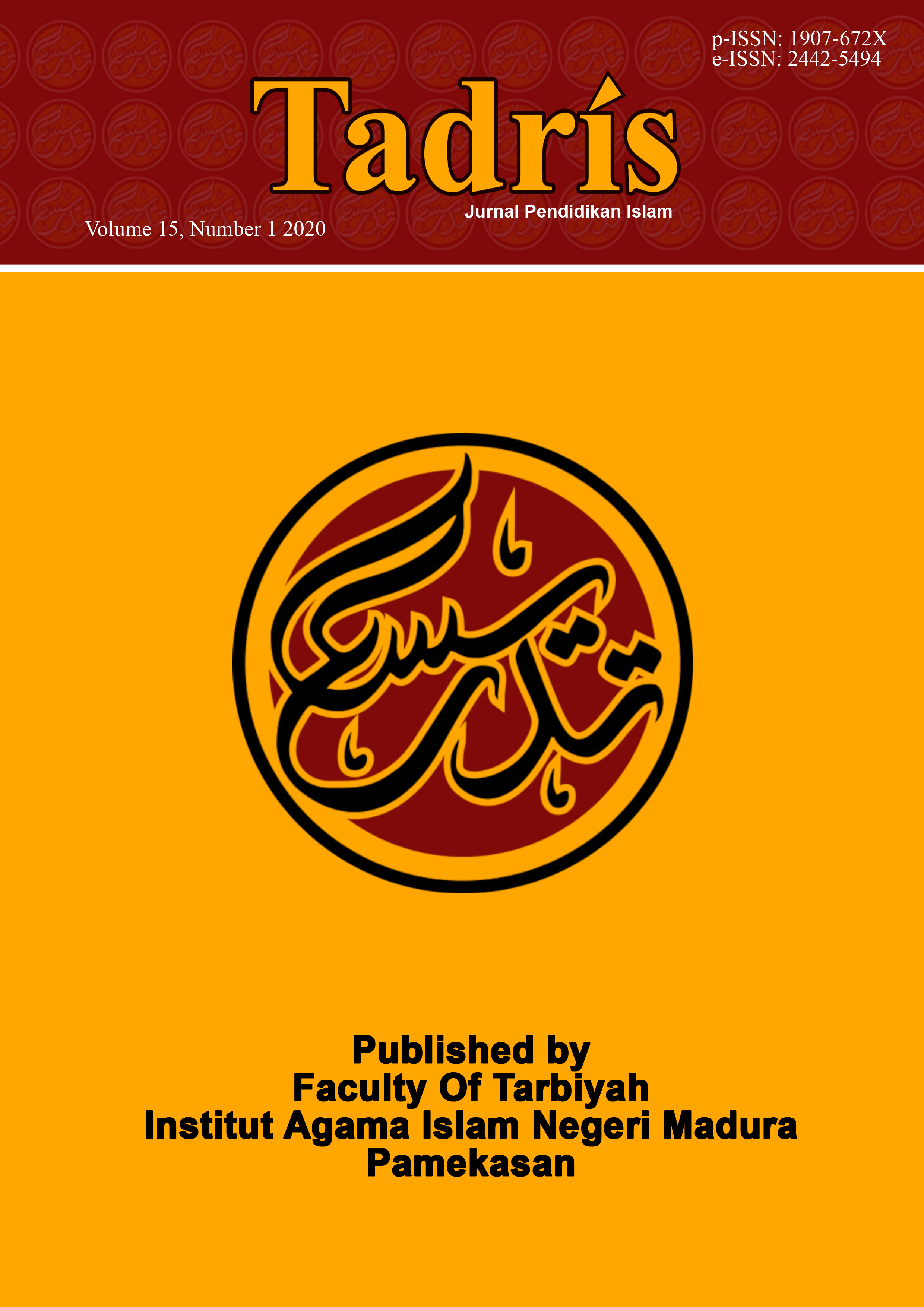Westernisasi Ilmu dalam Islamic Worldview
 Abstract views: 580
,
Abstract views: 580
,
 PDF downloads: 1574
PDF downloads: 1574
Abstract
The current technological advances, making various informations easily spread throughout the world. It includes the entry of foreign culture (Westernization) into the Indonesian State. This westernization does not only have impact on politics, culture, region and technology, but in its development, westernization began to go into science. This research uses a literary study method, namely data collection activities by conducting a review of various books, literature, notes and reports realting to the topic discussed. As a result, it can be seen that knowledge Westernization occurs due to the development of shopist who generally have an impact on knowledge in the West. Knowledge in the West as a whole only relies on ratio in describing various things. So the process has strengthened the thesis of the knowledge Westernization. Knowledge in the West has the characteristic of removing the value of belief and spirituality, so this concept breeds secularization. Whereas secularization itself is not only a western worldview that is not Islamic, but also contrary to Islamic teachings. Secularization eliminates revelation as a source of knowledge and negates the role of God in the scientific procces. This is what makes the knowledge Westernization increasingly clear.
Downloads
References
Al-Attas , Muhammad Naquib.1994. Konsep Pendidikan Islam: Suatu Rangka Pikir Pembinaan Filsafat Pendidikan Islam, terj. Haidar Bagir . Jakarta: Mizan
Az-Zarnuji. 1978. Ta’lim Al-Muta’alim, terj. Aliy As’ad . Kudus : Menara Kudus
Bagir, Haidar . Buku Saku Filsafat Islam. Jakarta: Mizan
Fahri Hidayat. “Pengembangan Paradigma Integrasi Ilmu: Harmonisasi Ilmu dan Sains dalam Pendidikan”, Jurnal Pendidikan Islam, Vol. IV, No. 2 2015
Hasib Amrullah. “Sophist dan Pengaruhnya Terhadap Pemikiran Islam Liberal di Indonesia”, Tafsiyah: Jurnal Pendidikan Islam, Vol.1, No.1 Februari 2017
Https://id.m.wikipedia.org/wiki/sekularisasi, diakses tanggal 2 November 2019 pukul 12.27 WIB
M. Nahwi. Tt. Kamus Lengkap 950 Triliyun: Inggris Indonesia Indonesia-Inggris. Surabaya: Mitra Pelajar
M.Gufron. “Transformasi Paradigma Teologi Teosentris Menuju Antroposentris: Telaah atas pemikiran Hasan Hanafi”, Millati: Journal Of Islamic Studies and Humanities, Vol. 3, No. 1, 2018
Mahbub Setiawan. “Kritik Terhadap Epistemologi Barat Modern : Perspektif Islamic Worldview” Tesis naskah publikasi, Surakarta: UMS
Muhammad Kosim. “Ilmu Pengetahuan Dalam Islam (Perspektif Filosofis-Historis”, Jurnal Tadris, Vol. 3, No. 2, 2008
Mundiri. 1994. Logika. Jakarta: PT Raja Grafindo Persada
Mustika Zed. 2004. Metode Penelitian Kepustakaan. Jakarta: Yayasan Obor Nasional
Nur Hasan. “Kritik Islamic Worldview Syed Muhammad Naquib Al-Attas terhadap Western Worldview”, Maraji’ : Jurnal Studi Keislaman, Vol. 1 No. 1, September 2014
Rosita Baiti & Abdur Razzaq, “Esensi Wahyu dan Ilmu Pengetahuan”, Jurnal Wardah, Vol 18, No. 2, 2017
Sarjuni. “Konsep Ilmu Dalam Islam dan Implikasinya Dalam Praktik Kependidikan”. Al-Fikri : Jurnal Studi dan Penelitian Pendidikan Islam, Vol. 1 No. 2, Agustus 2018
Suharni. “Westernisasi Sebagai Problema Pendidikan Era Modern”, Jurnal Al-Ijtimaiyyah, Vol. 1, No. 1, 2015
Copyright (c) 2020 TADRIS: Jurnal Pendidikan Islam

This work is licensed under a Creative Commons Attribution-NonCommercial 4.0 International License.
The journal operates an Open Access policy under a Creative Commons Non-Commercial 4.0 International license. Authors who publish with this journal agree to the following terms:
- Authors retain copyright and grant the journal right of first publication with the work simultaneously licensed under a
 Commons Attribution-NonCommercial 4.0 International License
Commons Attribution-NonCommercial 4.0 International Licensethat allows others to share — copy and redistribute the material in any medium or format, and adapt — remix, transform, and build upon the material.
- Authors are able to enter into separate, additional contractual arrangements for the non-exclusive distribution of the journal's published version of the work (e.g., post it to an institutional repository or publish it in a book), with an acknowledgement of its initial publication in this journal.
- Authors are permitted and encouraged to post their work online (e.g., in institutional repositories or on their website) prior to and during the submission process, as it can lead to productive exchanges, as well as earlier and greater citation of published work (see The Effect of Open Access).














